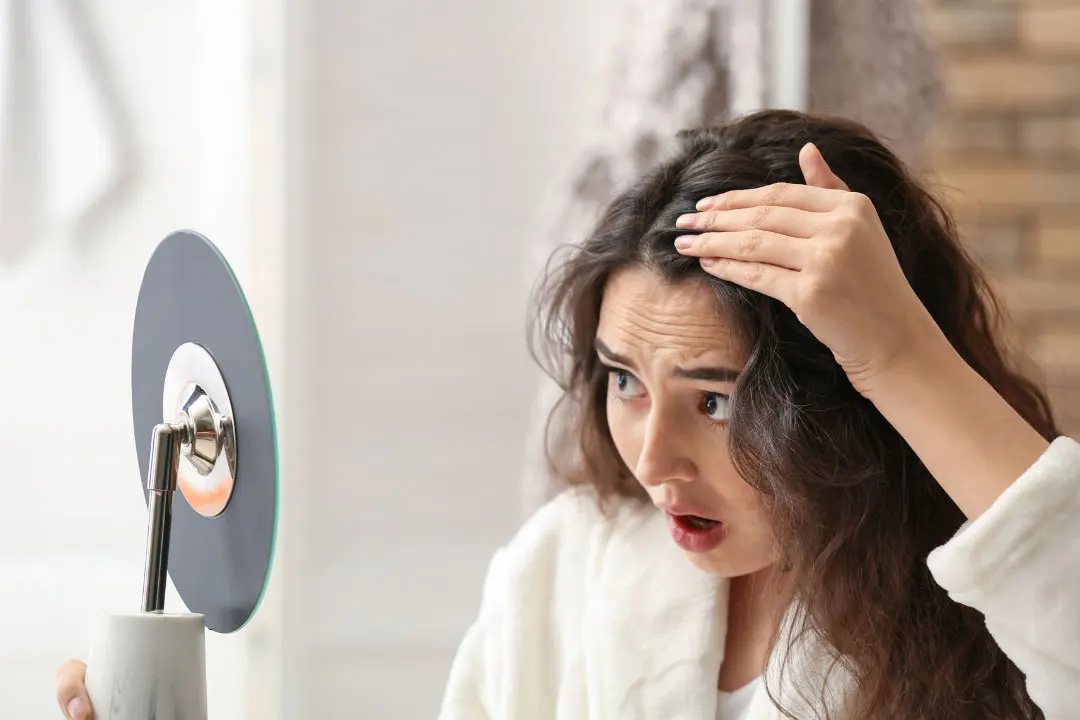Alopecia in females refers to hair loss or hair thinning experienced by women. While there are various types of alopecia with different causative factors, in some cases, topical treatments can help regrow hair. We’ll discuss five reasons to try a topical treatment for alopecia in females and recommend one of the best hair regrowth brands on the market.
You May Also Like:
7 Super Nutrients In Sea Moss For Healthier Skin, Hair, And Scalp
Ancient Nutrition Multi Collagen Protein vs Frog Fuel Power Protein
Fighting Back Against Alopecia in Females: 5 Great Reasons To Recruit a Topical Treatment is an original (NewsHealthWatch) article.
Understanding alopecia in females – it’s not just about hair.
If you’re struggling with alopecia, you know it’s about more than just “hair loss.” The psychological impact of alopecia on anyone can be significant, causing distress and loss of self-esteem. However, its effects on women can be particularly devastating due to societal expectations around hair and beauty. Sure, we can name a handful of famous women who rocked the shaved or bald look, and you may have a friend or two who is confident and looks great without hair. But honestly, most women dread the thought of losing their hair. This 2018 article by Science Direct discusses hair loss’s more profound psychosocial impact and why finding treatments is so important.
According to Harvard Health, about one-third of women will eventually experience alopecia. There are different types of alopecia, like alopecia areata, causing patchy hair loss, and androgenetic alopecia, a.k.a female pattern hair loss. It’s typically caused by a combination of genetic, hormonal, and environmental factors, including:
- Autoimmune conditions
- Pre- or post-menopause changes
- Medical conditions
- Medications
- Physical or emotional stress
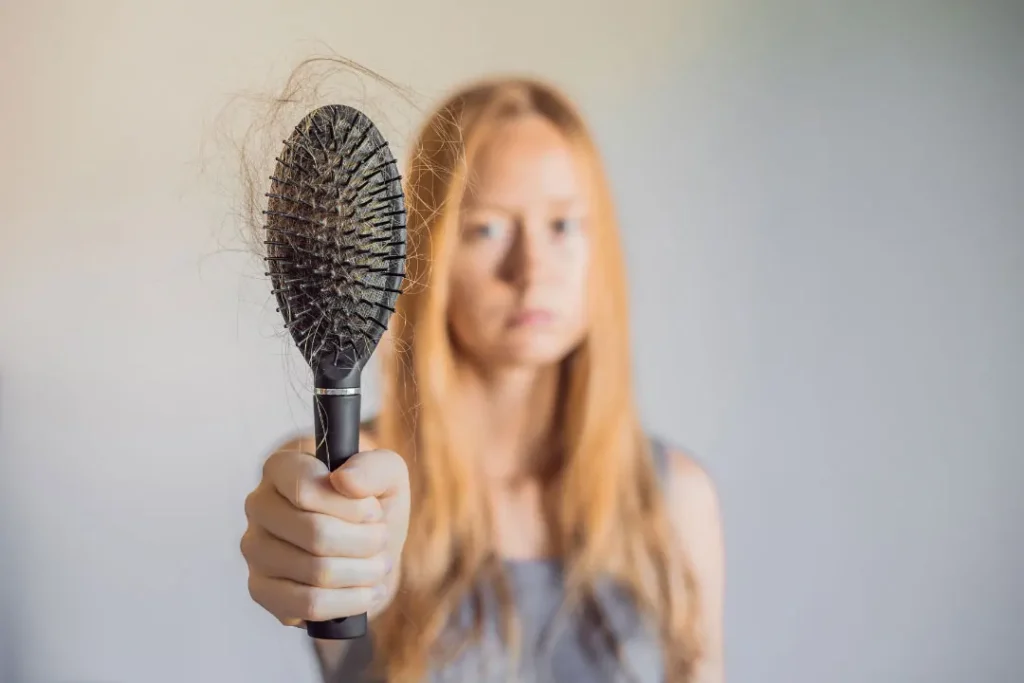
Standard treatments for alopecia in females may win the battle but lose the war.
Tackling alopecia is like navigating a maze with different paths. With each product having its quirks, benefits, and drawbacks, you may not be sure which direction to turn. Some current treatment options include:
Oral Minoxidil: This drug was initially formulated to combat high blood pressure. The research on its effects on hair loss is sparse, there is no standard dosage, and it carries potentially severe side effects. Topical Minoxidil can also include unpleasant side effects, and when you stop using it, you might find yourself back at square one, as previous hair loss often returns.
Anti-androgens like spironolactone can be effective, but they come with potential side effects like irregular menstruation or mood swings.
Alpha-reductase enzyme inhibitors such as Finasteride can curb hair loss, but like that random draw in a lottery, they don’t work for everyone. Plus, they may bring along headaches or dizziness.
HRT (Hormone Replacement Therapy) is sometimes used to treat alopecia in females. Still, it’s a double-edged sword, potentially causing bloating and breast tenderness. Additionally, it has been linked to a slightly increased risk of breast and uterine cancer, stroke, heart disease, and blood clots.
Steroids taken orally or injected topically into the scalp are powerful medicine but can produce side effects including thinning skin, scalp irritation, and a red or puffy face. Ingesting steroids may weaken your body’s immune system.
Invasive procedures like hair transplants and Platelet-Rich Plasma (PRP) can sometimes work, but even as minor surgery, they come with risks, discomfort, and the inconvenience of clinic visits.
Now, let’s turn the spotlight onto topical hair growth treatments. They’re the unsung heroes in the war against alopecia in females and offer hope without the drama of severe side effects.
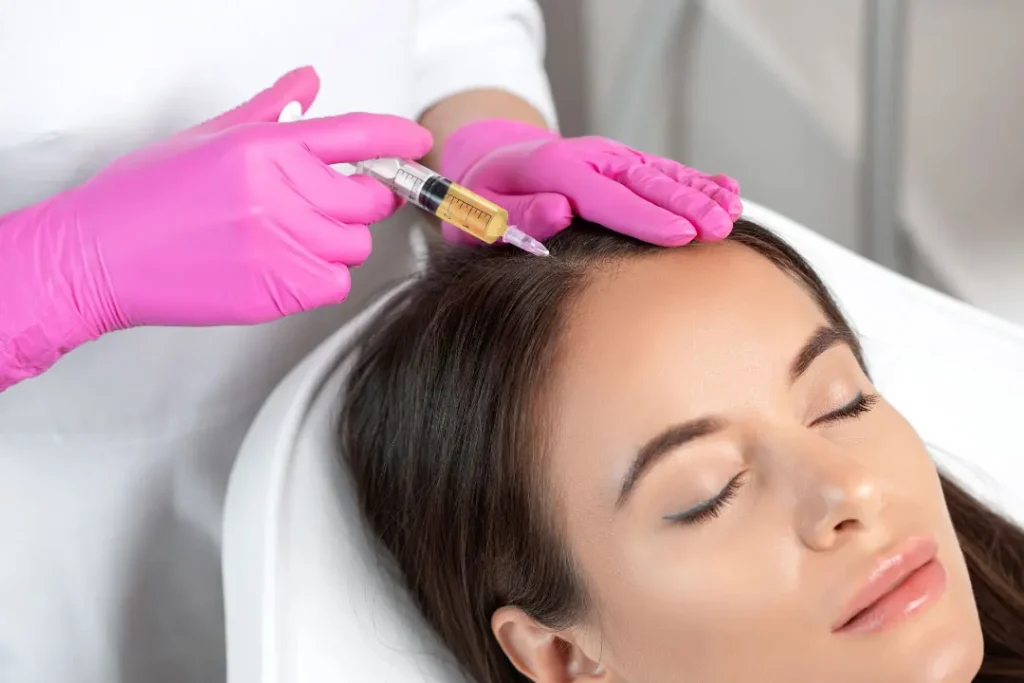
Five great reasons to recruit a topical treatment for alopecia in females.
There are numerous options for topical hair loss treatments that may not require lifetime use and offer a promising approach to address hair loss for several reasons:
1. Safer and kinder to your scalp
Generally, topical treatments are well-tolerated, with minimal side effects. They offer a less aggressive approach than oral medications, which can sometimes cause systemic side effects or invasive procedures that can cause scalp irritation.
2. Easy to test for risk of an allergic reaction
Picture this – you’ve just swallowed an oral hair loss pill, and now you’ve got to wait and hope that your body responds well to it. With a topical treatment, you can conduct a simple patch test at home before using it to see if you have any allergic reactions. If you have any side effects, they’ll likely be isolated to the application site.
3. Targeted and efficient
Topical treatments work as if using GPS. Instead of taking the scenic route through your entire body, they target the exact location they’re needed, making them more efficient and less intrusive to your system. It’s like sending a top-secret agent straight to the problem area instead of a whole, chaotic army.
4. Ease of use and convenience
Unlike invasive procedures that require clinic trips, topical treatments can be effortlessly incorporated into your daily beauty regimen, making them a practical option for your busy schedule.
5. Ingredients that promote a natural approach to hair growth
Topical treatments for hair loss often contain ingredients that may assist in returning your hair to its normal hair growth cycle; here are a few examples:
Hyaluronic acid acts like a sprinkler system for your scalp, hydrating it to foster hair growth. It also increases blood flow and delivers oxygen and nutrients to the scalp. This 2014 study shows topical hyaluronic acid’s benefits in reducing scalp inflammation.
Peptides, short chains of amino acids, are the building blocks of proteins and the architects of your hair. Human copper-binding peptides (GHK-Cu) have been studied for their ability to stimulate hair follicles and promote collagen production – both are necessary for hair growth. This 2018 article in the International Journal of Molecular Science examines how copper peptides can increase hair growth and thickness and enlarge hair follicle size.
BAICAPIL™, a botanical blend, is like a protective shield for your hair, enhancing hair density and curbing hair loss. It is often added to topical hair-growth products.
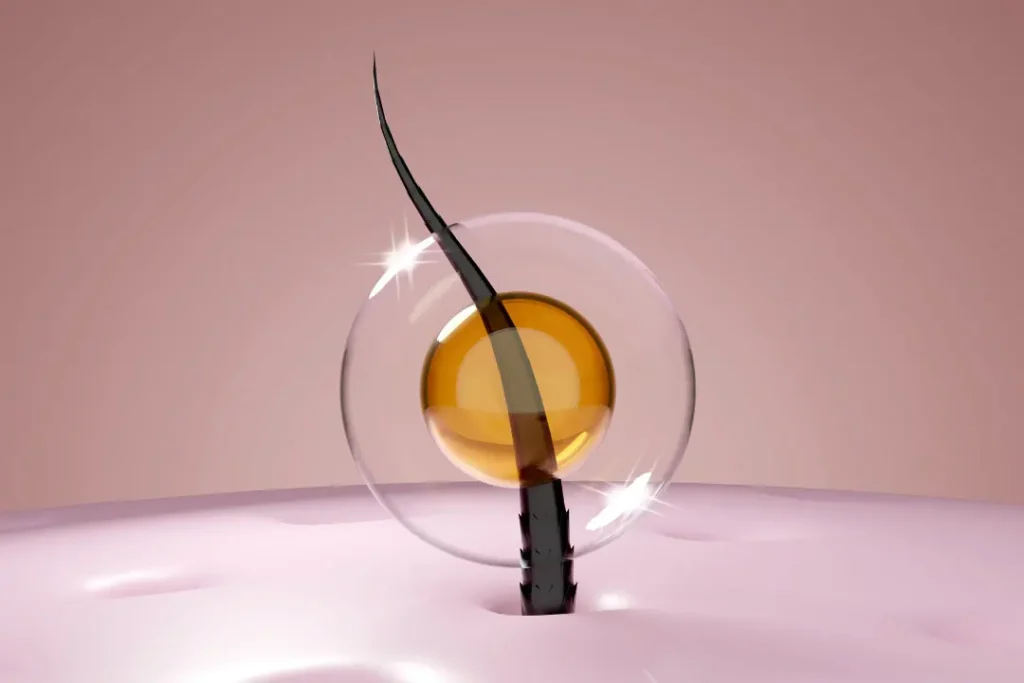
A top-tier choice for fighting alopecia in females.
With a reputation for utilizing innovative ingredients in its products, More Hair Naturally
stands at the forefront of hair loss solutions, ready to battle alopecia. Their flagship product, More Hair Naturally 9, harnesses the powerhouse trio of BAICAPIL™, Hyaluronic Acid, and Peptides, in addition to probiotic plant extracts and plant and adult adipose-derived stem cells – ASCs – among other ingredients.
The creators of More Hair Naturally believe that “It’s not just about hair. It’s about taking positive actions to change your life, taking actions to improve your confidence, self-esteem, and overall enjoyment in life.” They understand the more profound effects of alopecia in females.
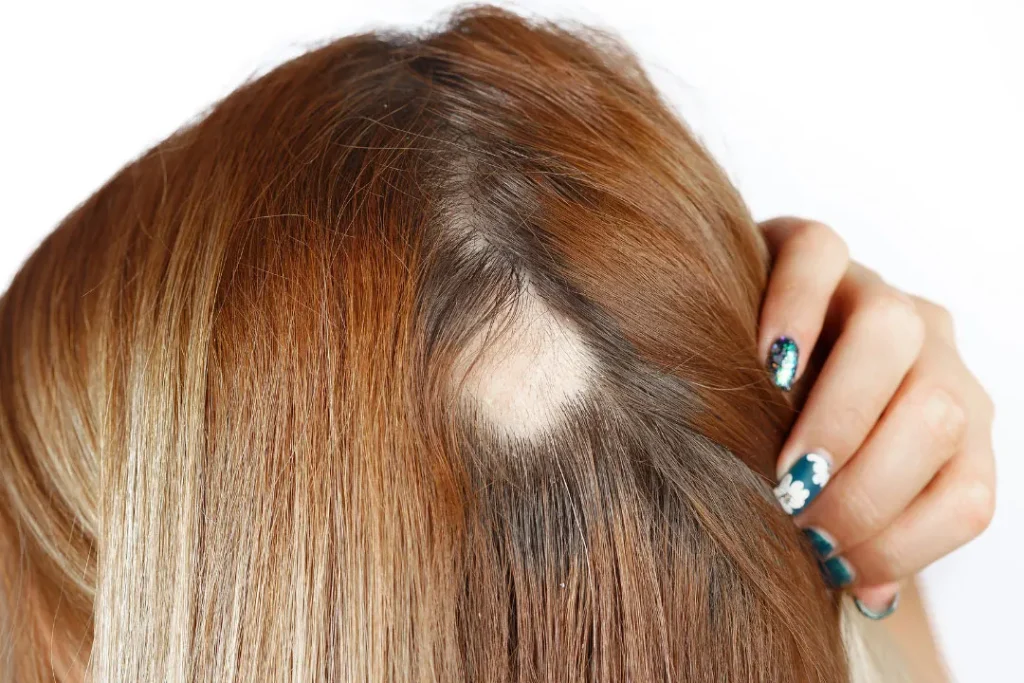
You can fight back against alopecia.
In the fight against alopecia in females, considering all available treatment options is crucial to dealing with this condition effectively. Topical treatments, offering benefits such as ease of use, safety, and proven ingredients, present a potent approach. With knowledge and the right recruits, you’ll have a fighting chance against alopecia.
For further research:
NBCNews.com – Half of older women have hair loss, study finds
Cleveland Clinic – Hair Loss in Women: Causes, Treatment & Prevention
American Academy of Dermatology – Hair loss: Diagnosis and treatment
New Atlas – Stem cell topical solution for baldness offers positive trial results
Shape – Hyaluronic Acid for Hair: Benefits and How to Use It
eMediHealth – Does Copper Peptide Improve Hair Growth?
Important Note: The information contained in this article is for general informational purposes only, and should not be construed as health or medical advice, nor is it intended to diagnose, prevent, treat, or cure any disease or health condition. Before embarking on any diet, fitness regimen, or program of nutritional supplementation, it is advisable to consult your healthcare professional in order to determine its safety and probable efficacy in terms of your individual state of health.
Regarding Nutritional Supplements Or Other Non-Prescription Health Products: If any nutritional supplements or other non-prescription health products are mentioned in the foregoing article, any claims or statements made about them have not been evaluated by the U.S. Food and Drug Administration, and such nutritional supplements or other health products are not intended to diagnose, treat, cure, or prevent any disease.

